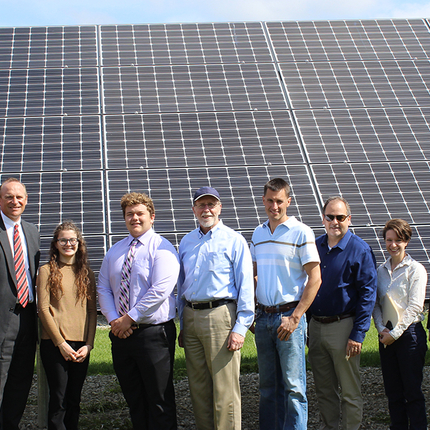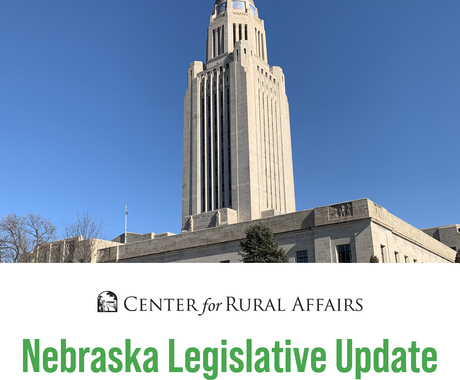By Stephanie Enloe, former staff member
As an active and idealistic college student, I traveled to Washington D.C. to participate in a national lobby day for young people who wanted to talk with senators and representatives about supporting renewable energy.
Thinking back, in 2009, we were well into an economic recession and the job market was weak. That time period marked the beginning of a renewable energy revolution, and we did not know how quickly this industry would grow.
But I sensed then, and I now know, that investing in renewable energy can help revive our economy, improve national security, and provide a myriad of environmental and public health benefits.
When it was time for our group of Iowa students to meet with Sen. Grassley, he asked me why Congress should focus on advancing renewable energy rather than creating jobs for the millions of Americans suddenly facing unemployment. I told him the two were not mutually exclusive – investing in clean energy was also an investment in long-term job creation. Sometimes referred to as the father of the U.S. wind industry, Sen. Grassley has passed and defended numerous pieces of legislation demonstrating that he agrees with that mentality.
Fast forward less than a decade, and it is my job to meet with legislators to discuss how we build on the phenomenal success story that is the renewable energy economy. For example, although it only provides about 1 percent of U.S. electricity, the solar industry now accounts for more than a quarter million jobs. With solar costs plummeting, this industry grew 95 percent in 2016 alone.
This spring, I had a chance to meet with Iowa congressmen from both sides of the political aisle to learn first-hand about win-win scenarios resulting from renewable energy investment. We heard from business owners, school officials, and farmers who use solar and energy efficiency to save money.
We also heard from solar installers about jobs they have created across rural Iowa and the indirect economic and community benefits stemming from their work. The WACO school district in Wayland, Iowa, for example, invested in solar collectors to cut energy costs by 90 percent, ensuring their school can continue serving as the heart of this rural community.
Whether you care about the economy and job creation, clean air and water, national security, or energy choice — solar offers a viable solution. At a time when Republicans and Democrats believe we agree on very little, renewable energy — and especially solar energy — offers a refreshing opportunity to discuss where our values overlap.
Feature photo: Policy associate Stephanie Enloe (fourth from right) met with Iowa congressmen and solar installers on ar ecent tour in rural Iowa. About 1 percent of U.S. electricity is provided by solar, while the industry accounts for more than a quarter million jobs. | Photo submitted.




